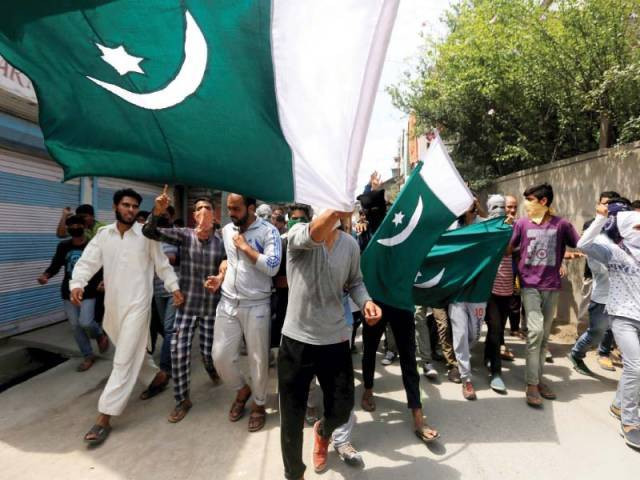The death of Pakistani politics
Pakistani politics is dead. Long live the politics of convenience

PHOTO: REUTERS
Gone are the days of ideological politics in Pakistan. And so it is that politics in Pakistan is dead. What has emerged in Pakistan is a persistent disfiguration of Pakistani political science. The concepts of the political left or right are alien to our brand of politics. Ideological affiliations are of absolutely no relevance to the modern day Pakistani voter. Perhaps, this is because the Pakistani right or left, in the strictest of terms, does not exist. Popular politics in Pakistan is more of a crude amalgamation of the left and right, and of all positions in between. Too often, a self-styled leftist candidate is found to be making concessions towards the political right and vice versa. In fact, the majority of the political elite have refrained from even adopting a political ideology. This is for their political convenience, so that they can move across the spectrum of political ideologies and beliefs depending on the advantages a particular position offers. This transactional nature of politics is now so ingrained and extreme, that the lines between the left and the right themselves have been blurred. One cannot claim with confidence what the left or the right signifies in Pakistan. Perhaps, a simpler understanding is that between the liberals and the conservatives. But here too, the political elite is found to tiptoe across the aisle in search of political gain.
PML-N, military not on same page over militancy: Imran
Otherwise considered to be a substantially developed discipline and science in itself, politics in Pakistan, instantly attracts negative connotations and is characterised by personal rivalries, patronage and power grabbing. Pakistani politics once entailed the pursuit of power for a greater cause, today Pakistani politics is simply the pursuit of power. Power then has, over time, become an end in itself instead of a means to an end. Take Jinnah. His orchestration of politics was exemplary. Through political operation, Jinnah was able to procure a substantial amount of power for himself and his party. But his political efforts and therefore his power was directed. In glaring contrast with the political elite of today, Jinnah’s pursuit of power was not an end in itself but a means to the realisation of an agenda bound by vision and ideology, not mere self-interest. This vision was what later transpired into the creation of Pakistan. This is the sad regression we face, from the utilisation of ideologically driven politics to create a nation for the emancipation of an oppressed minority, to conducting politics as a means to promoting self-interest and undercutting others. In fact, seemingly, in recent times, all of Pakistani political science has boiled down to cricket league finales.
The political left and the political right, and almost all of the national political debate had recently comprised almost entirely of those in favour of certain cricket league finales and those against them. Such is the grave situation of a rich and diverse discipline.
Murad Saeed, Javed Latif tiff resolved by National Assembly jirga
The aforementioned actions of our political elite are not self-contained. In fact, they have had a dramatic impact on the wider understanding of politics in Pakistan. The appreciation of politics amongst the population of Pakistan has nosedived, and so has its understanding. Politics, in the eyes of the general public, instead of being viewed through an ideological lens has been confined to specific personalities, their actions, economic advantages and again, the building of roads and tube-wells.
Perhaps the best way to explain the aforementioned situation is through an illustration of the degradation of Pakistani political science and wider political understanding over time. This should demonstrate how the political understanding and recognition of the average Pakistani has deteriorated. This illustration entails asking a simple question and its historical answer; “Who (or what) is Faiz Ahmed Faiz?”
Supreme authority in a democratic state
Faiz was once a Marxist, internationalist firebrand, a political powerhouse. A founding leader of the Communist Party of Pakistan, he had disrupted and then formed the very fibres of politics of Pakistan. He was recognised the world over, for his contributions to leftist politics and was acknowledged as a trade unionist, Marxist and internationalist.
But that was then, and as the politics of ideology gave way to the politics of convenience, Faiz was relegated to being recognised as simply a poet. This phase lasted with some consolation, as Faiz was nationally revered for his exceptional poetry. However, this consolation also gave way, as Faiz was confined to mobile phone text messages as a “romantic poet.”
Alas, the worst was yet to come, because today Faiz Ahmed Faiz, is not a Marxist-internationalist revolutionary political leader, he is not a national poet, he is not even a “romantic poet.” Today, to the great misfortune of this nation, Faiz is a Metro Bus Station in Islamabad.
Published in The Express Tribune, March 19th, 2017.
Like Opinion & Editorial on Facebook, follow @ETOpEd on Twitter to receive all updates on all our daily pieces.














COMMENTS
Comments are moderated and generally will be posted if they are on-topic and not abusive.
For more information, please see our Comments FAQ